Indigenous Governance Database
Economic and Community Development
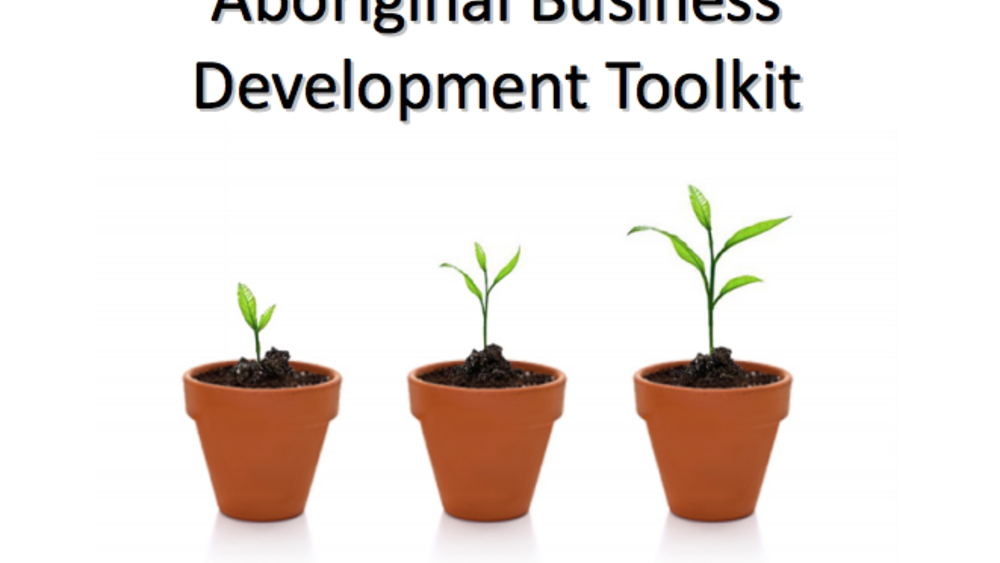
Aboriginal Business Development Toolkit
If you're an Aboriginal person thinking about starting or expanding a business, this toolkit has been developed with you in mind. While many helpful guides exist, this document includes considerations that may be of particular interest to you, your family and your community. Whether you live on-…
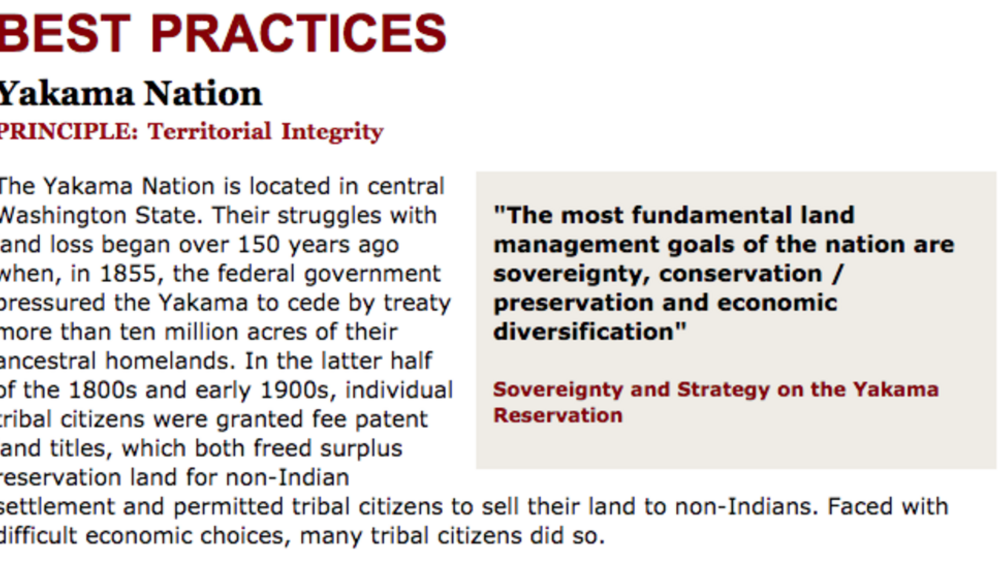
Best Practices Case Study (Territorial Integrity): Yakama Nation
The Yakama Nation is located in central Washington State. Their struggles with land loss began over 150 years ago when, in 1855, the federal government pressured the Yakama to cede by treaty more than ten million acres of their ancestral homelands. In the latter half of the 1800s and early 1900s,…
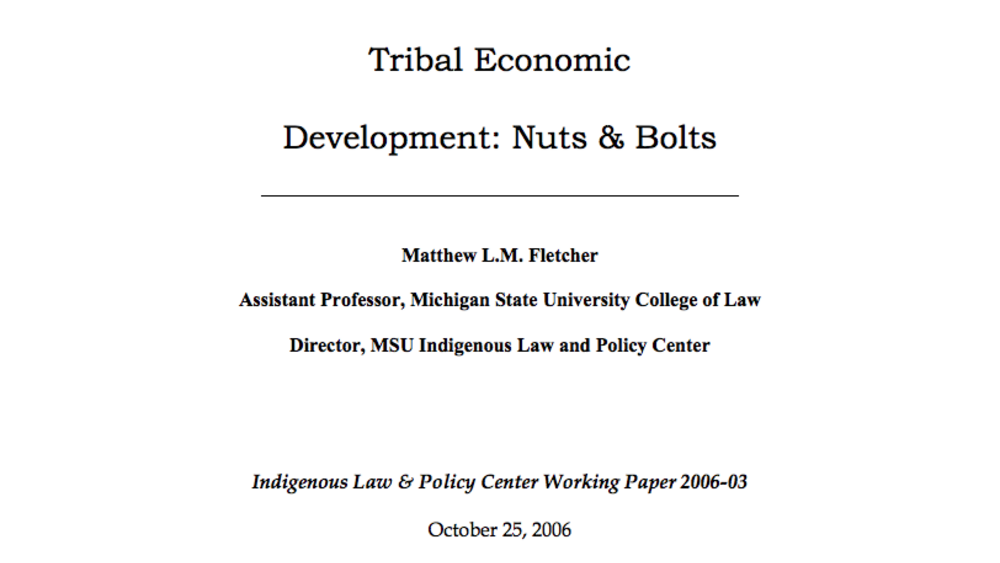
Tribal Economic Development: Nuts & Bolts
Tribal economic development is a product of the need for Indian tribes to generate revenue in order to pay for the provision of governmental services. Unlike the federal government or states, Indian tribes – in general – have no viable tax base from which to generate revenues sufficient to…
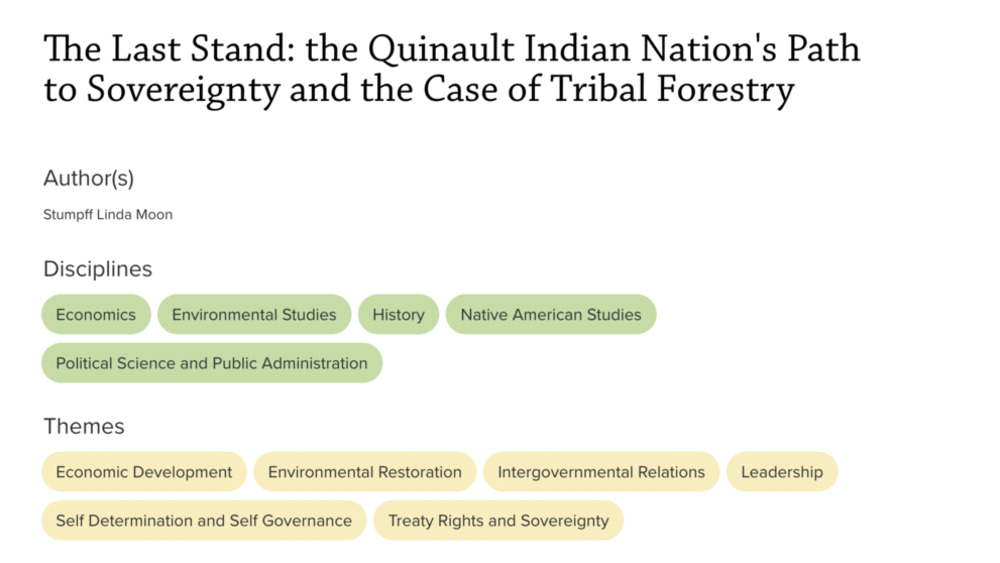
The Last Stand: the Quinault Indian Nation's Path to Sovereignty and the Case of Tribal Forestry
This case tells a story of forestry management policies on the Quinault Reservation. In the early years, the Office of Indian Affairs (OIA) and later the Bureau of Indian Affairs (BIA) acted like a landlord, allocating large timber sales to non-Indian timber companies. The Dawes Act fragmented the…
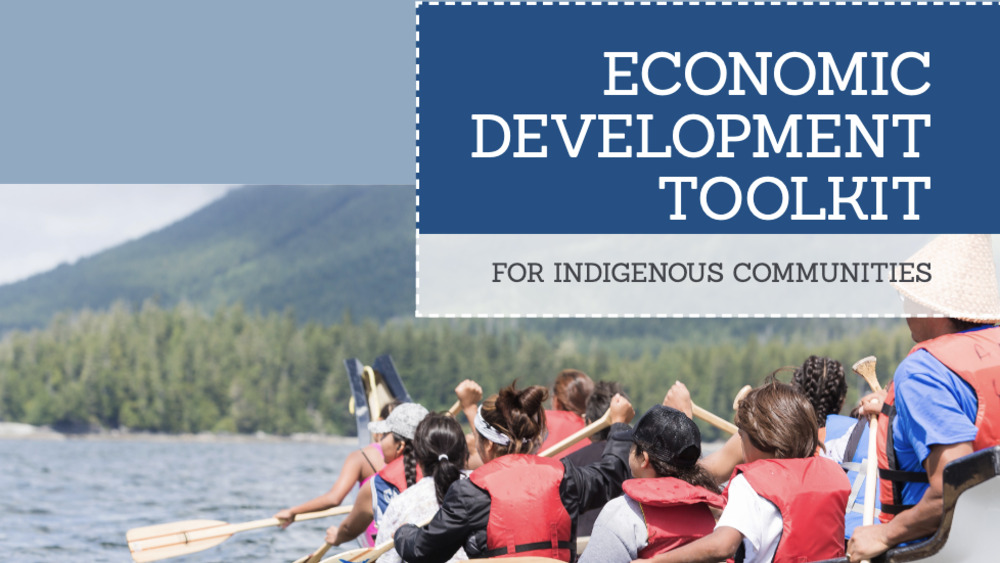
Economic Development Toolkit for Indigenous Communities: Tips, Tools & Techniques
Economic development offers First Nations an avenue to meet the needs of community members, ensuring they have access to adequate food and shelter, healthcare, education, and social programming. Beyond these basic needs, economic development also provides a mechanism to create wealth for future…
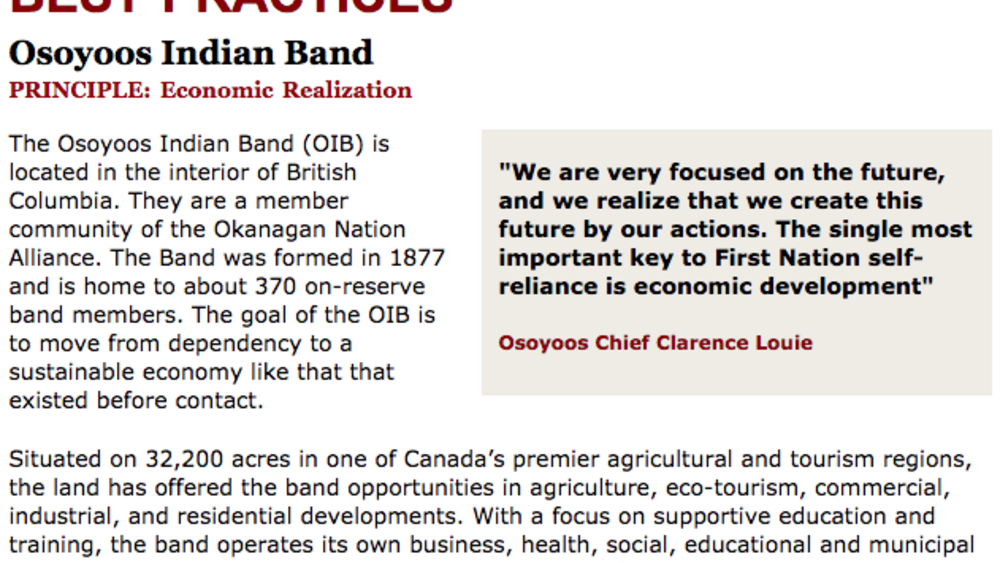
Best Practices Case Study (Economic Realization): Osoyoos Indian Band
The Osoyoos Indian Band (OIB) is located in the interior of British Columbia. They are a member community of the Okanagan Nation Alliance. The Band was formed in 1877 and is home to about 370 on-reserve band members. The goal of the OIB is to move from dependency to a sustainable economy like that…
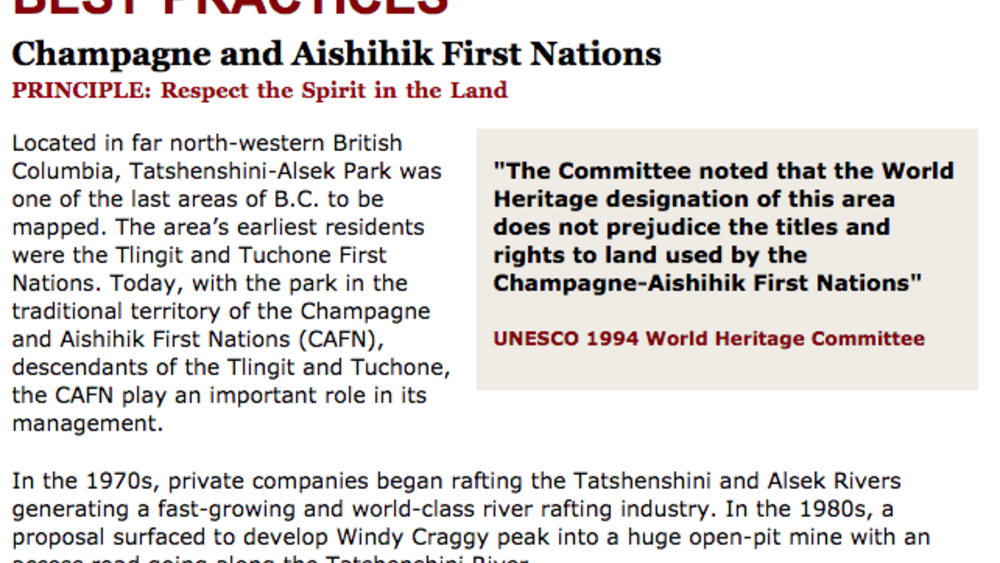
Best Practices Case Study (Respect the Spirit in the Land): Champagne and Aishihik First Nations
Located in far north-western British Columbia, Tatshenshini-Alsek Park was one of the last areas of B.C. to be mapped. The area's earliest residents were the Tlingit and Tuchone First Nations. Today, with the park in the traditional territory of the Champagne and Aishihik First Nations (CAFN),…
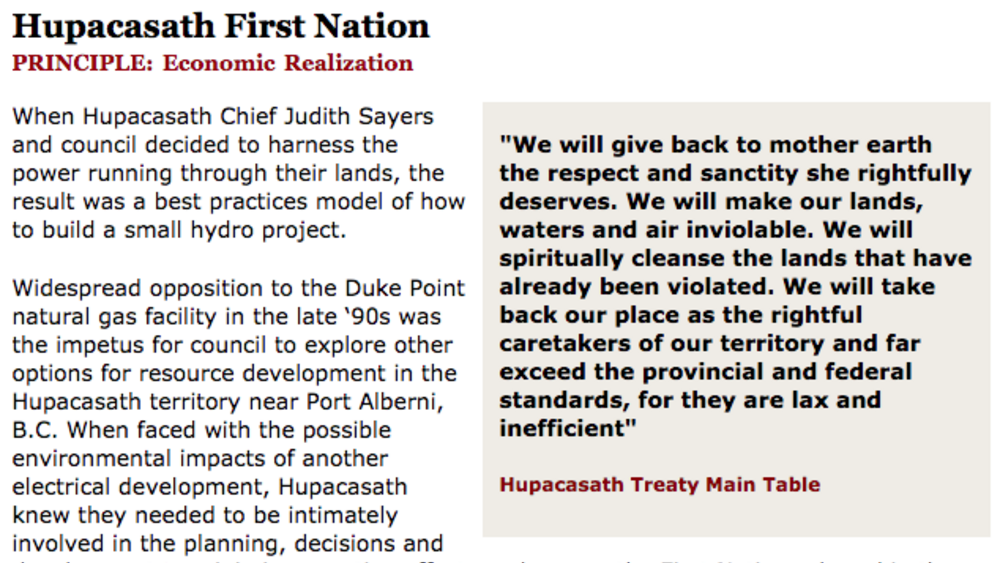
Best Practices Case Study (Economic Realization): Hupacasath First Nation
When Hupacasath Chief Judith Sayers and the council decided to harness the power running through their lands, the result was a best practices model of how to build a small hydro project. Widespread opposition to the Duke Point natural gas facility in the late '90s was the impetus for the council to…
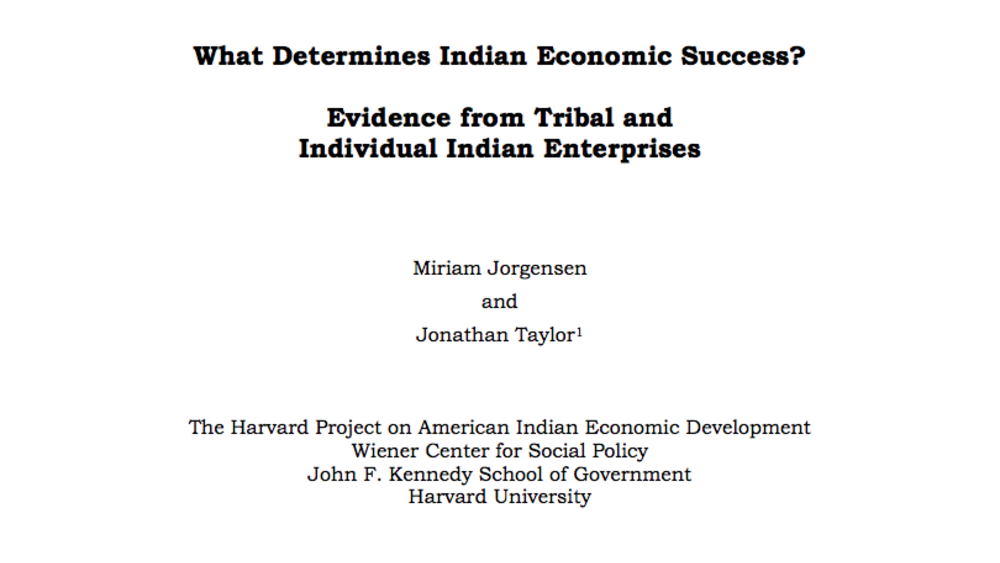
What Determines Indian Economic Success? Evidence from Tribal and Individual Indian Enterprises
Prior analysis of American Indian nations' unemployment, poverty, and growth rates indicates that poverty in Indian Country is a problem of institutions particularly political institutions, not a problem of economics per se. Using unique data on Indian-owned enterprises, this paper sheds light on…
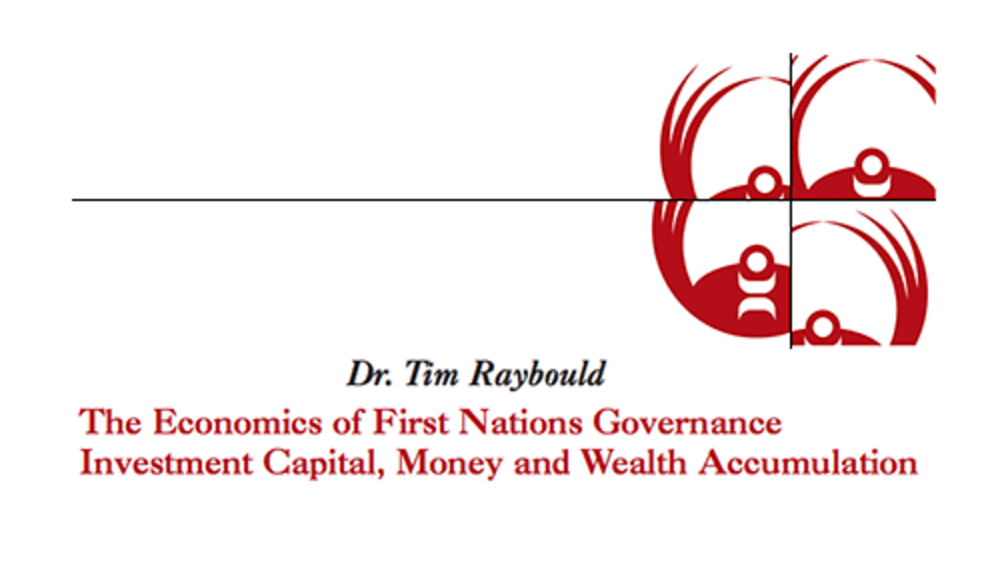
The Economics of First Nations Governance Investment Capital, Money and Wealth Accumulation
There has been much said and written about the underdevelopment of Indian reserves in Canada, the lack of wealth in First Nations’ communities and the concomitant poverty of most First Nations’ people. While Canada sits at seven on the United Nations Human Development Scale this…
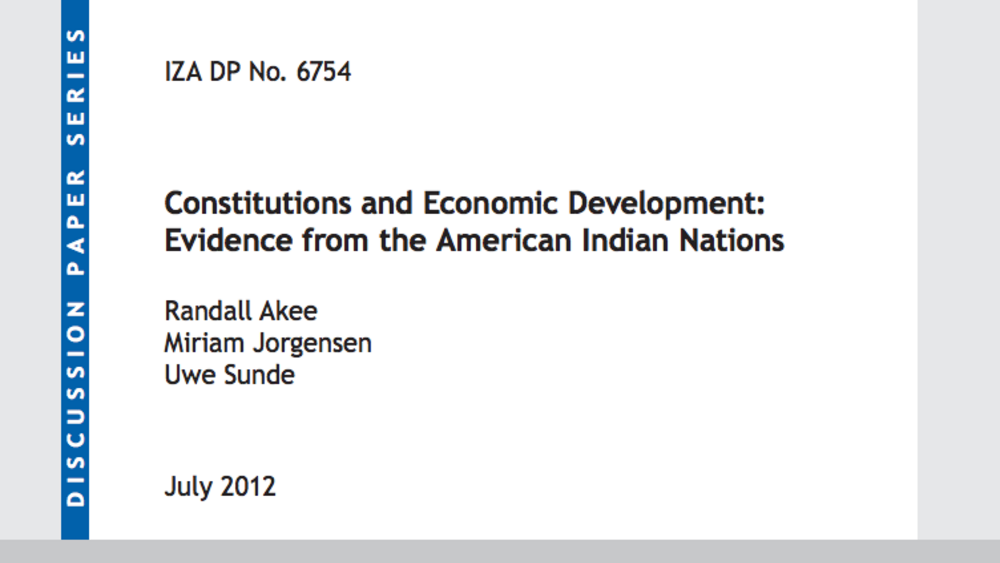
Constitutions and Economic Development: Evidence from the American Indian Nations
This paper presents an empirical examination of economic and institutional development. Utilizing a novel data set on American Indian tribal nations we investigate how constitutional design affects economic development, while holding the broader legal and political environment fixed. Instrumental…
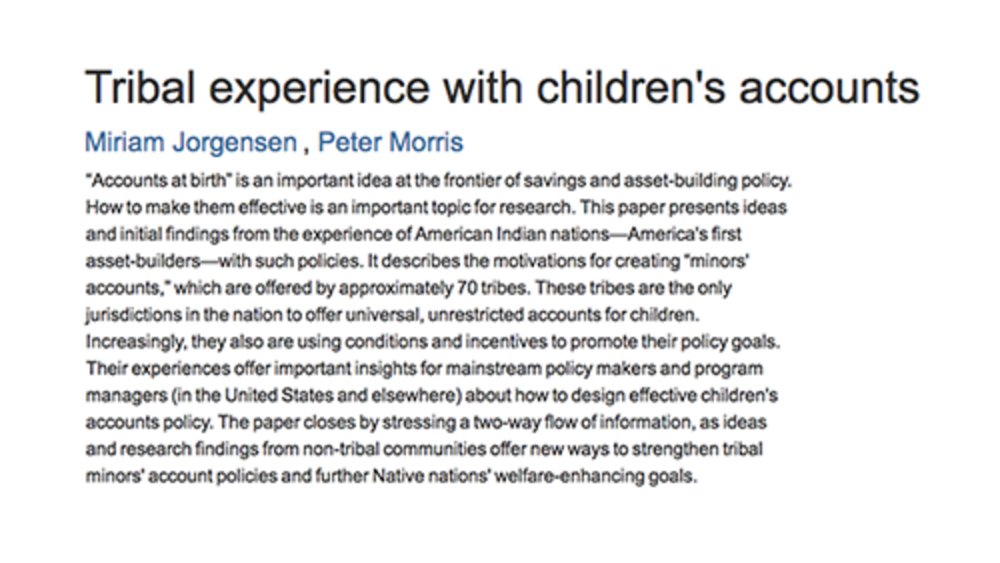
Tribal experience with children's accounts
“Accounts at birth” is an important idea at the frontier of savings and asset-building policy. How to make them effective is an important topic for research. This paper presents ideas and initial findings from the experience of American Indian nations–America's first asset-builders–with such…
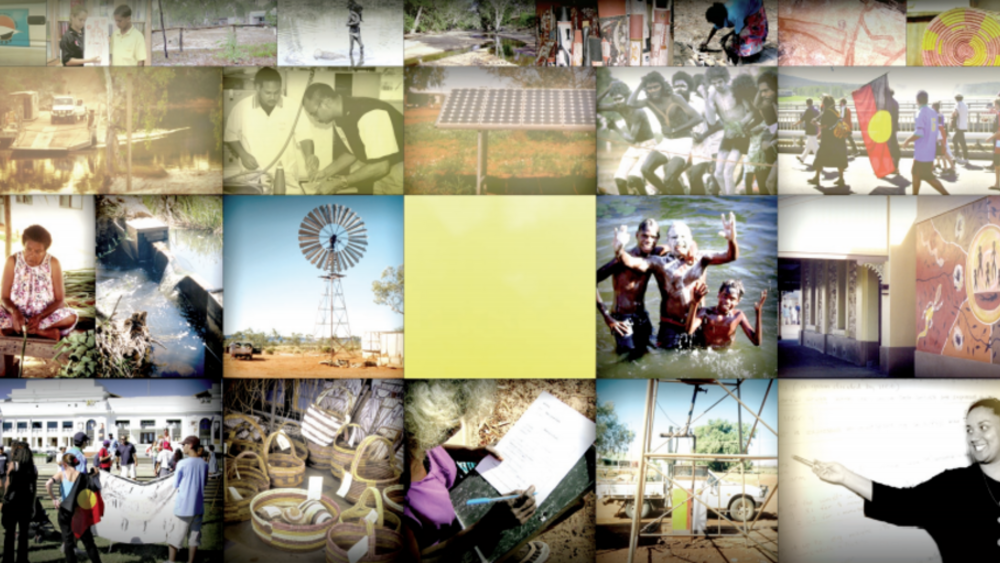
From Gove to Governance: Reshaping Indigenous Governance in the Northern Territory
This paper attempts to identify the key challenges facing Indigenous people and governments in reshaping the architecture of Indigenous governance in the Northern Territory of Australia, and considers some strategic options for a way forward. First, a brief historical background is provided to…
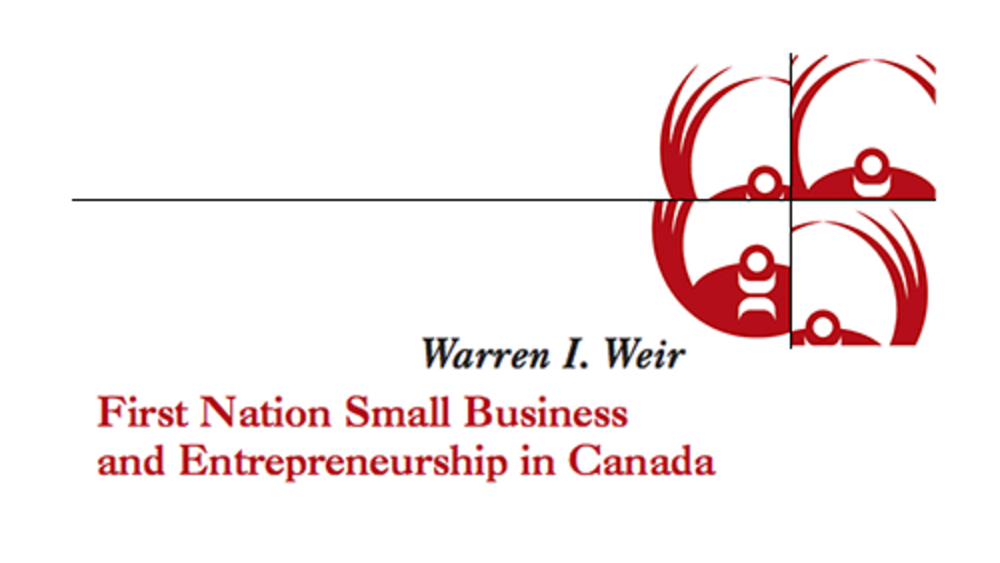
First Nation Small Business and Entrepreneurship in Canada
There are thousands of Aboriginal organizations in Canada. They are owned, managed and staffed, wholly or in part, by First Nation (status and non-status Indian), Inuit, and Métis men, women, and youth. They exist in every region in the country where they perform profit, not-for…
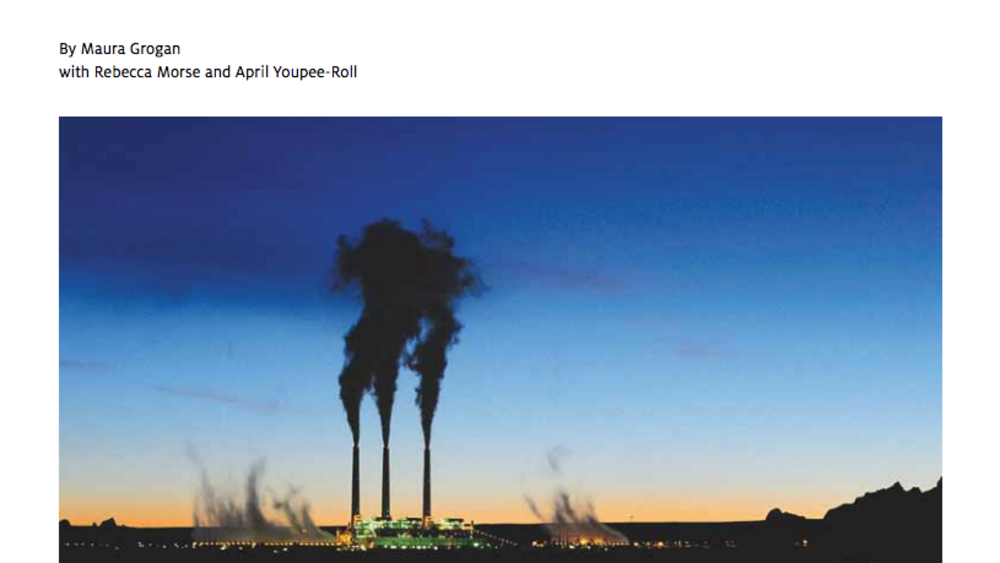
Native American Lands and Natural Resource Development
The rules that govern oil, gas and mining on American Indian tribal lands are complex, and the tribes that seek economic development through natural resources face a range of challenges. In this report, Revenue Watch gives an overview of the issues and describes current approaches to natural…
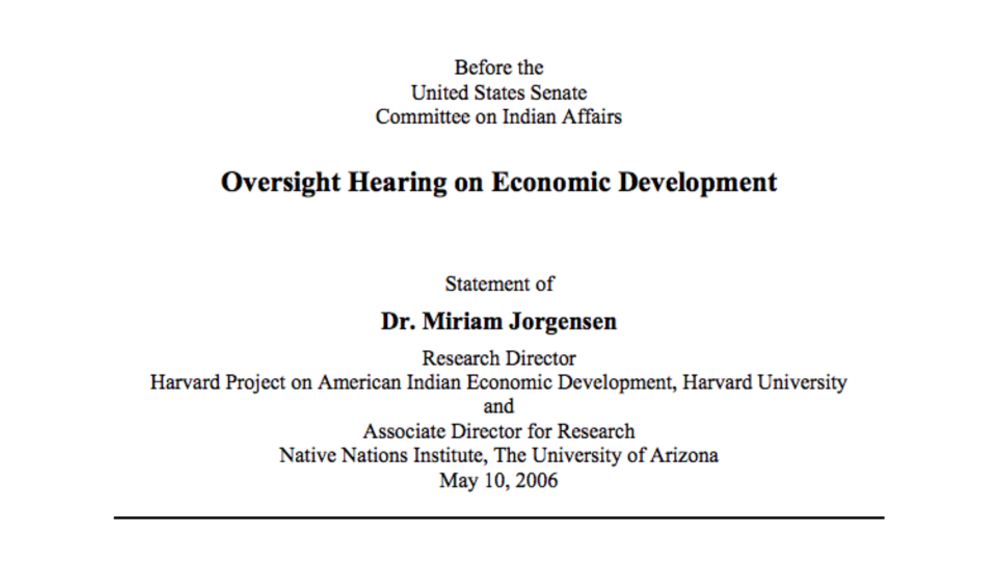
Statement before the United States Senate Committee on Indian Affairs Oversight Hearing on Economic Development
Why is it that, amidst the well-documented and widespread poverty and social distress that characterize American Indian reservations overall, an increasing number of Native nations are breaking old patterns and building economies, social institutions, and political systems that work? What explains…
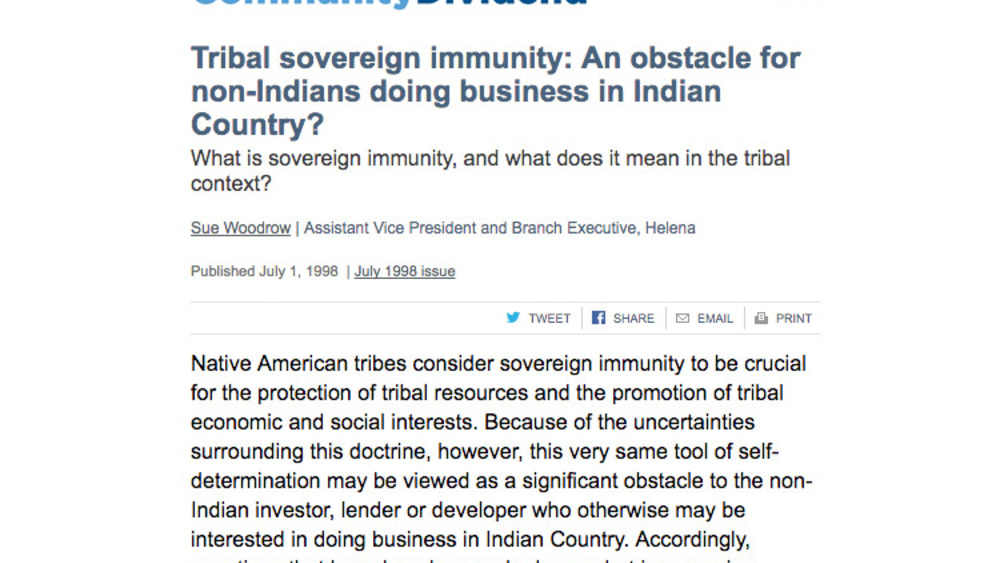
Tribal sovereign immunity: An obstacle for non-Indians doing business in Indian Country?
Native American tribes consider sovereign immunity to be crucial for the protection of tribal resources and the promotion of tribal economic and social interests. Because of the uncertainties surrounding this doctrine, however, this very same tool of self-determination may be viewed as a…
Pagination
- First page
- …
- 18
- 19
- 20
- …
